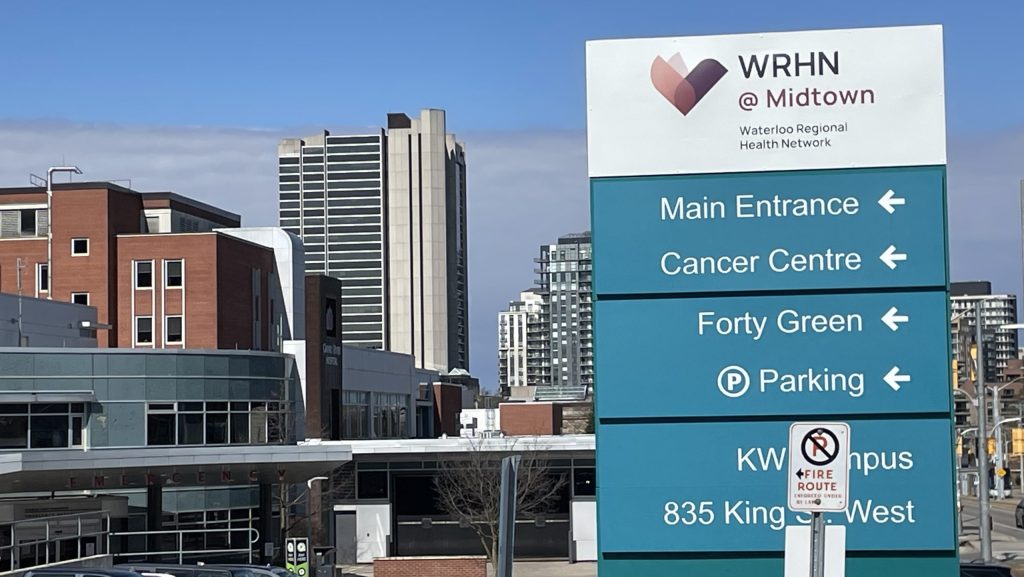Health
Waterloo Region Hospitals Slash Ambulance Offload Times by 74%

A significant achievement has emerged from the Waterloo Regional Health Network (WRHN), which oversees key healthcare facilities in the Kitchener-Waterloo area. Over the past five months, the network has dramatically reduced ambulance offload times, enhancing emergency care for local residents.
As of September 2024, the average offload time at WRHN @ Midtown, formerly known as Grand River Hospital KW Campus, has plummeted from 107 minutes in April 2024 to just 28 minutes. Likewise, at WRHN @ Queen’s Blvd, previously St. Mary’s General Hospital, the offload time has decreased from 83 minutes to 27 minutes during the same period.
Strategic Changes Drive Improvement
Brandon Douglas, Vice President of Patient Care and Site Lead at Queen’s Blvd, highlighted the urgency to address rising offload times prior to the official merger of the two hospitals. “The coming together of our two legacy hospitals under one VP portfolio in January 2025 allowed us to implement strategies that had already proven effective at either site,” Douglas noted.
Since the end of June, WRHN has maintained ambulance offload times at around 30 minutes for approximately 90 percent of patients. This success is attributed to several key initiatives aimed at streamlining operations.
Among these changes are the introduction of standardized processes and improved collaboration between WRHN and the Region of Waterloo Paramedic Services. Douglas emphasized the importance of utilizing a joint Electronic Medical Record (EMR) system, which allows for better coordination and communication across both hospitals.
Additionally, staff have been encouraged to view the offload area as a “horizontal waiting room” rather than a treatment space, which has helped to expedite the process of transferring patients from ambulances to emergency departments.
Community Impact and Future Plans
With a rapidly growing population in the Waterloo Region, which is nearing one million residents, ensuring the efficiency of emergency services has become paramount. A new hospital is also being planned for north Waterloo, which is expected to further enhance healthcare delivery in the area.
In response to the increasing demand for emergency services, the Canadian Institute for Health Information reported a more than doubling of emergency department visits for pneumonia last fall compared to the previous year. This trend underscores the need for efficient healthcare services as the region continues to develop.
For residents considering whether to call an ambulance, the Region of Waterloo has published a guide to assist in making informed decisions regarding medical care. As improvements continue, the Waterloo Regional Health Network remains committed to providing timely and effective emergency services to the community.
-

 Science3 months ago
Science3 months agoToyoake City Proposes Daily Two-Hour Smartphone Use Limit
-

 Top Stories3 months ago
Top Stories3 months agoPedestrian Fatally Injured in Esquimalt Collision on August 14
-

 Health3 months ago
Health3 months agoB.C. Review Reveals Urgent Need for Rare-Disease Drug Reforms
-

 Technology3 months ago
Technology3 months agoDark Adventure Game “Bye Sweet Carole” Set for October Release
-

 World3 months ago
World3 months agoJimmy Lai’s Defense Challenges Charges Under National Security Law
-

 Lifestyle3 months ago
Lifestyle3 months agoVictoria’s Pop-Up Shop Shines Light on B.C.’s Wolf Cull
-

 Technology3 months ago
Technology3 months agoKonami Revives Iconic Metal Gear Solid Delta Ahead of Release
-

 Technology3 months ago
Technology3 months agoApple Expands Self-Service Repair Program to Canada
-

 Technology3 months ago
Technology3 months agoSnapmaker U1 Color 3D Printer Redefines Speed and Sustainability
-

 Technology3 months ago
Technology3 months agoAION Folding Knife: Redefining EDC Design with Premium Materials
-

 Business3 months ago
Business3 months agoGordon Murray Automotive Unveils S1 LM and Le Mans GTR at Monterey
-

 Technology3 months ago
Technology3 months agoSolve Today’s Wordle Challenge: Hints and Answer for August 19









